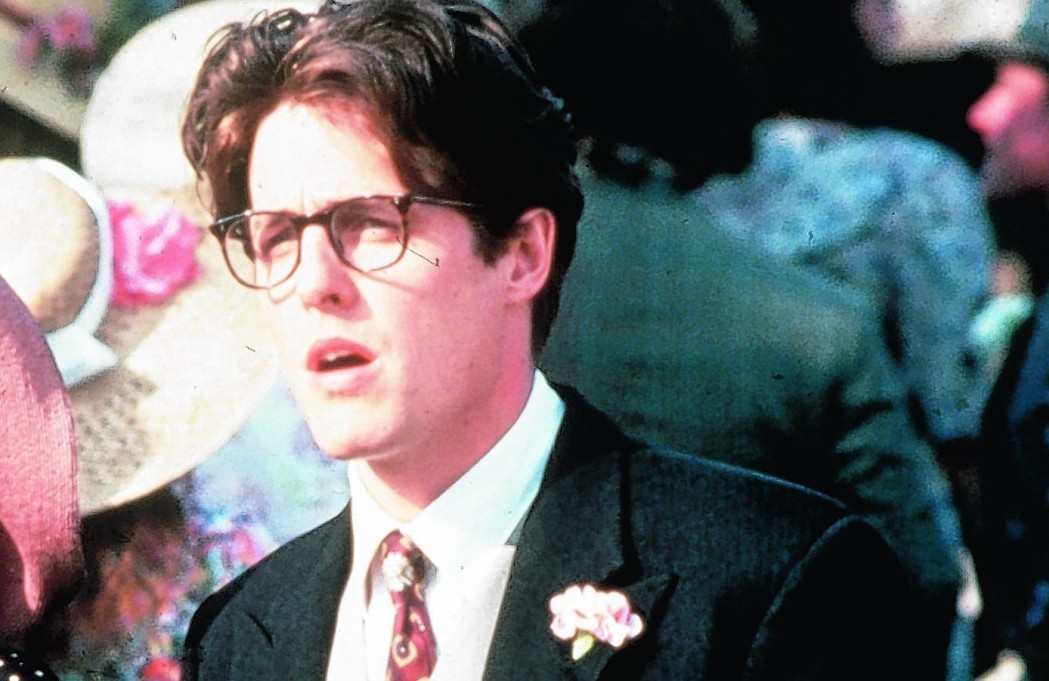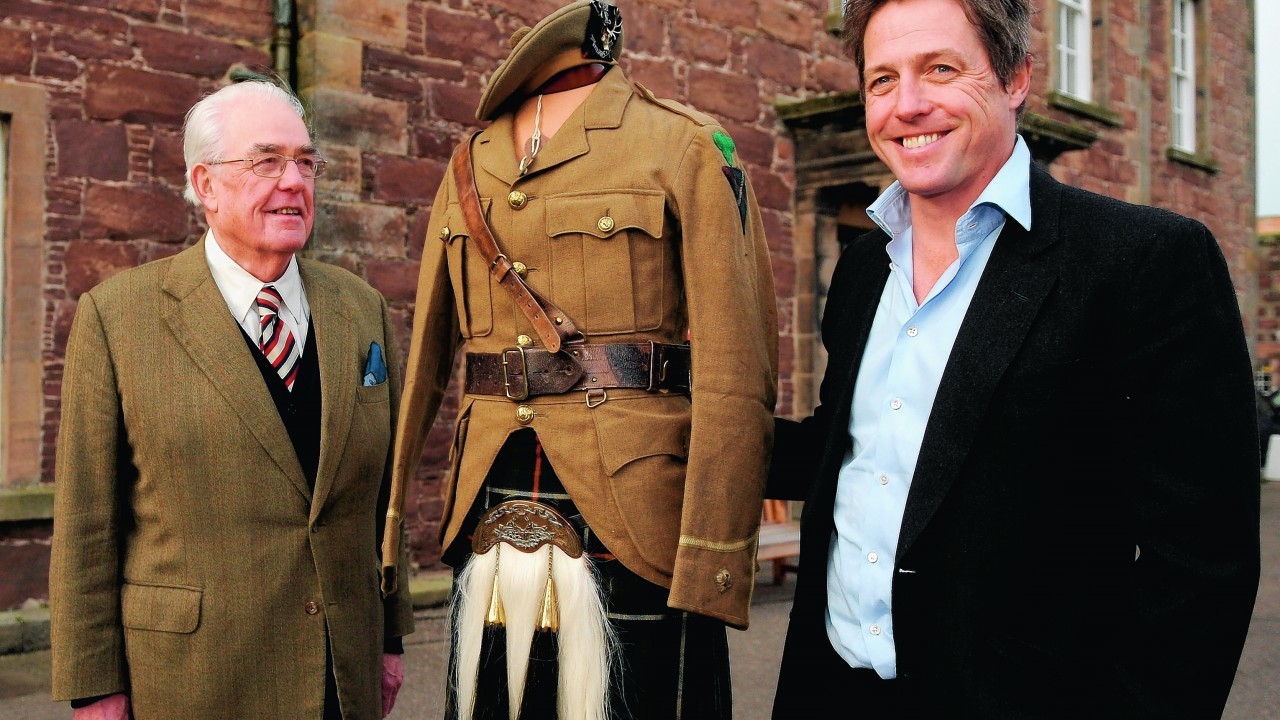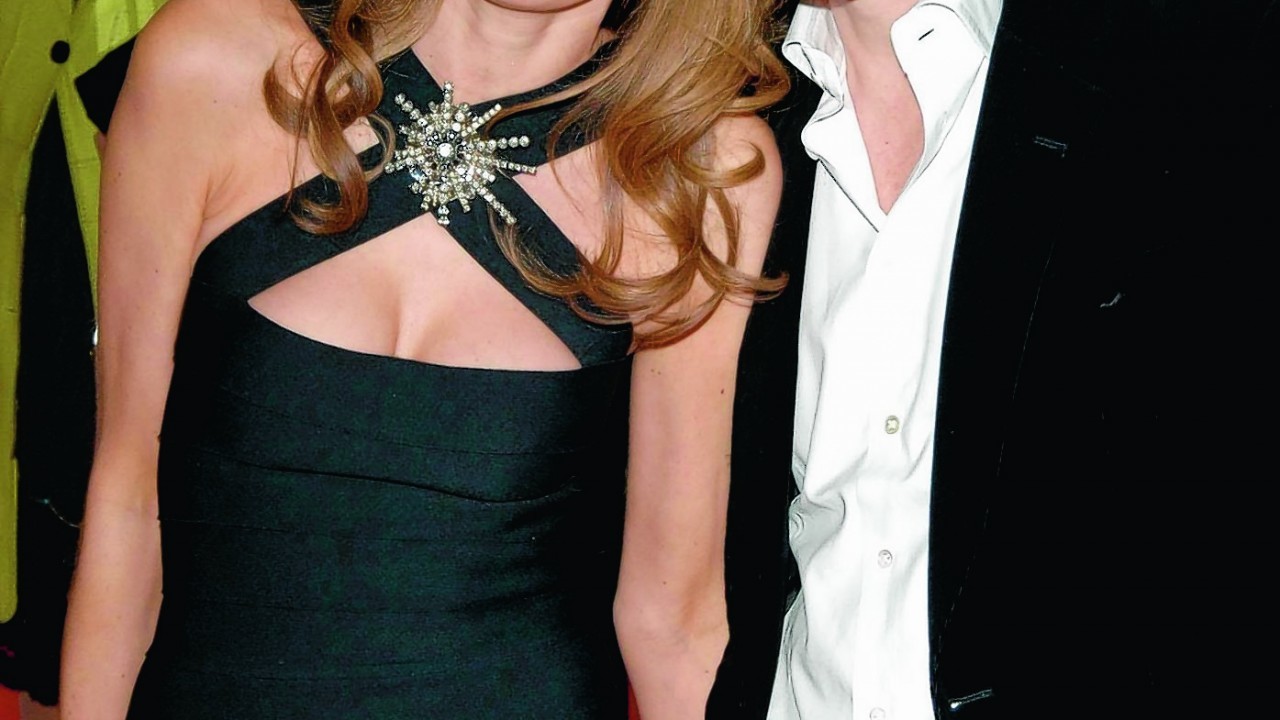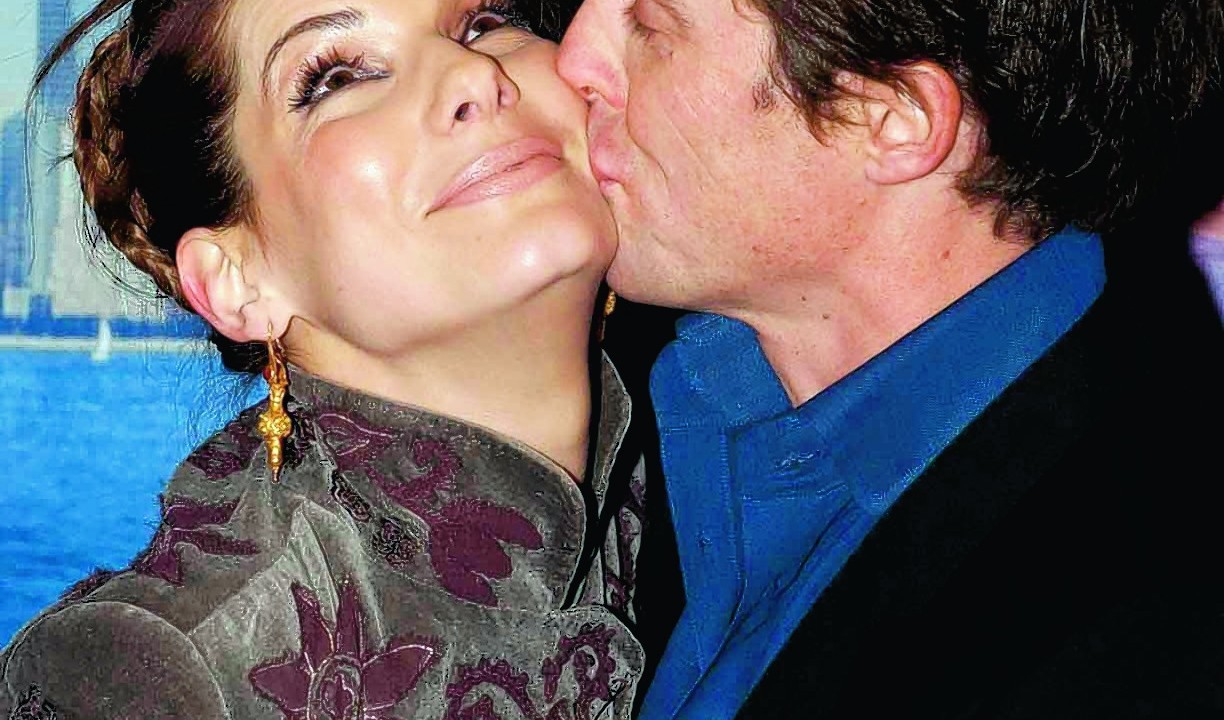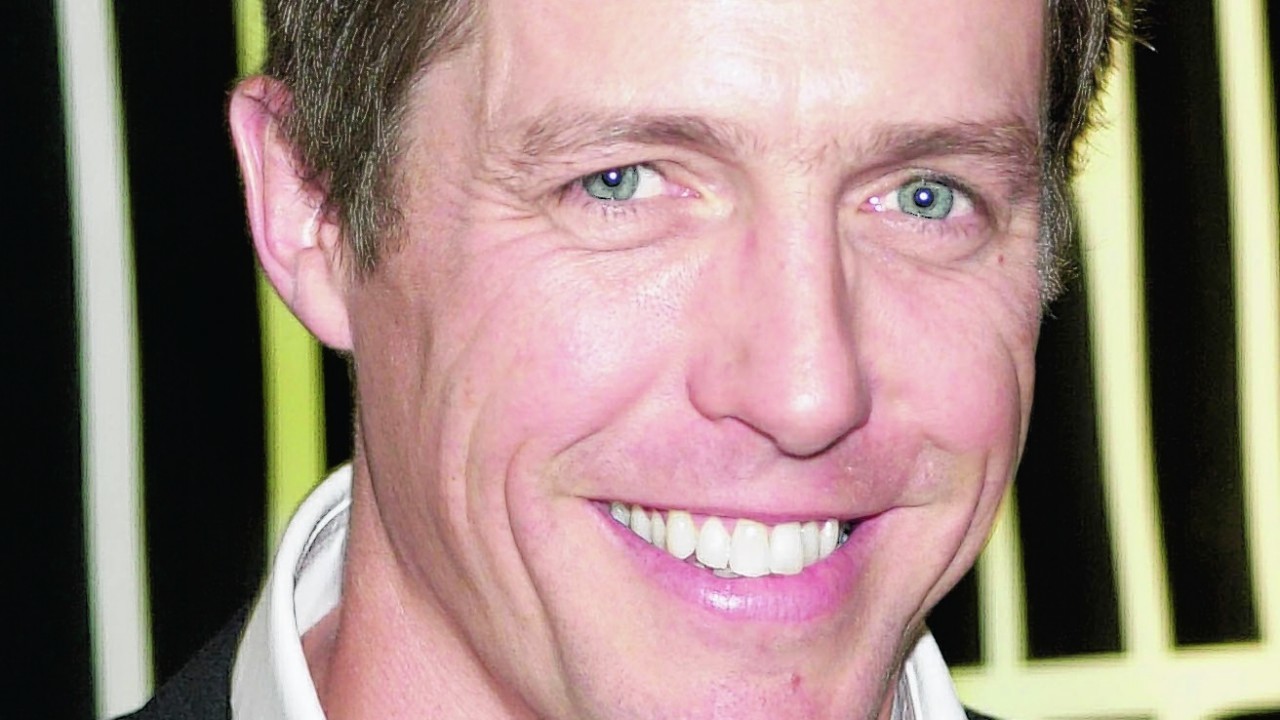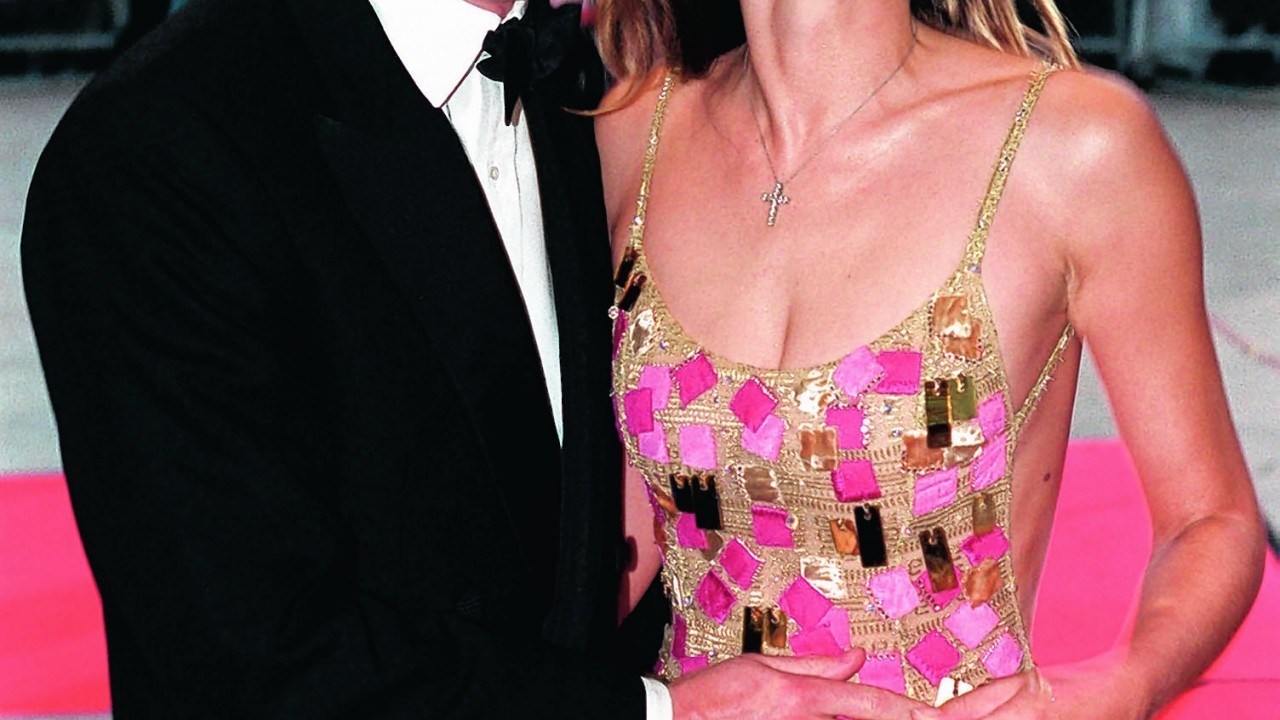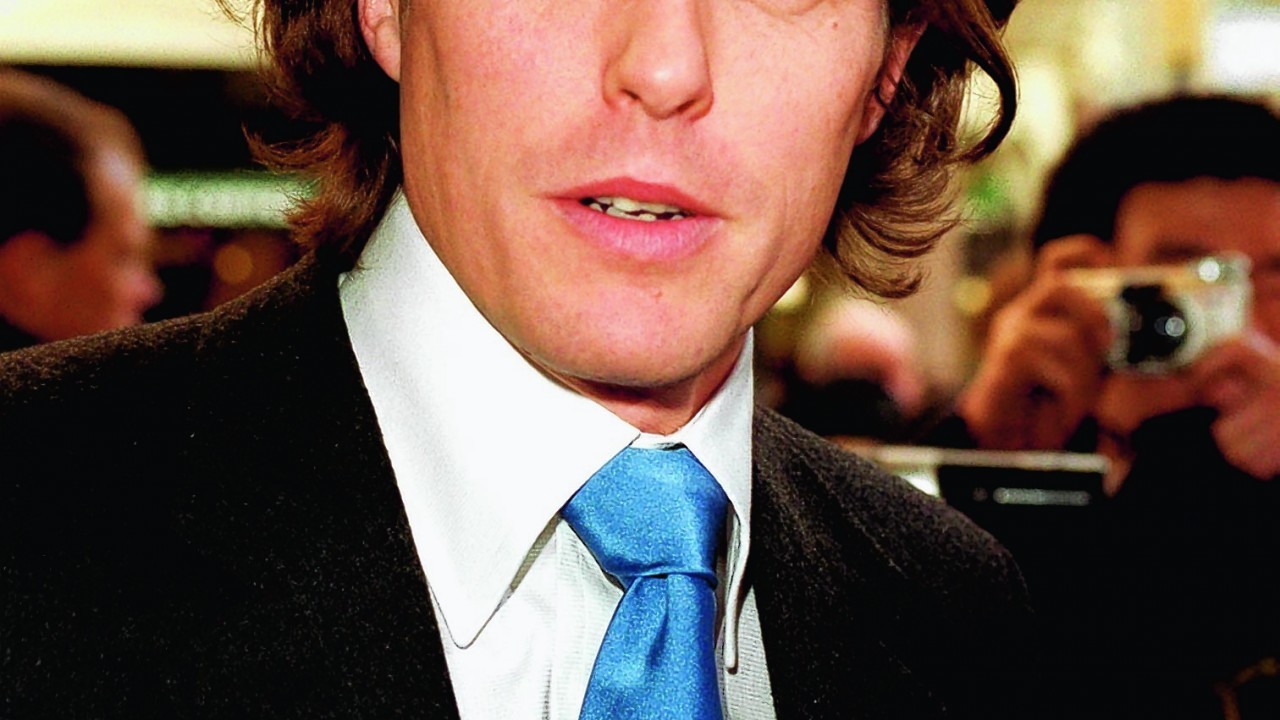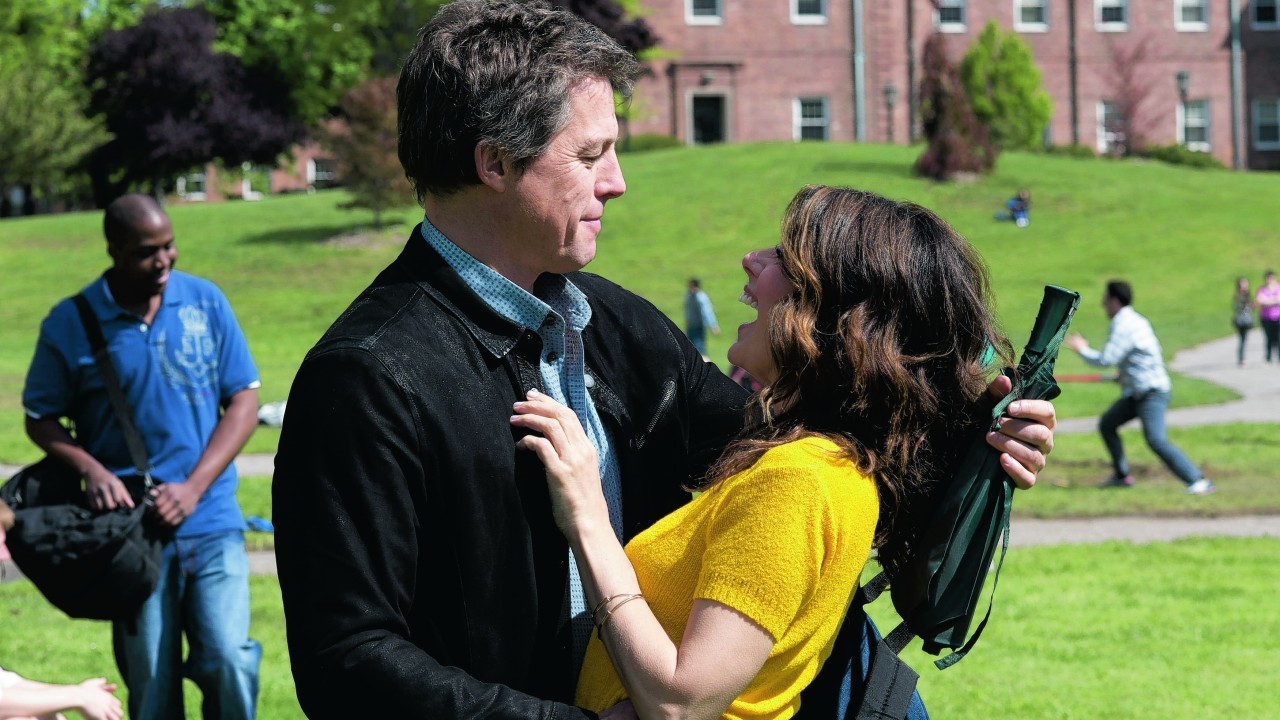In new romcom The Rewrite, Hugh Grant plays a washed-up screenwriter, jaded by Hollywood. Of course there’s a happy ending, but, as the actor tells us, it’s the jaded part he really relates to
Do you remember that scene in Notting Hill, where Hugh Grant’s character goes to see Julia Roberts at her swanky London hotel, not realising she’s in the middle of doing interviews promoting her new film?
Embarrassed, he poses as a journalist for Horse And Hound magazine and a series of torturously awkward interviews ensue.
That’s a bit like how it feels waiting to meet Grant.
A member of the anti-media intrusion campaign group Hacked Off, who bugged a former tabloid reporter and got him to confess to phone hacking before exposing him in The New Statesman, it’s no secret that Grant dislikes the press. He claims he was reluctantly “wheeled out” of semi-retirement to appear in his latest romcom, The Rewrite (in cinemas now).
The 54-year-old actor is actually perfectly polite, and even charming. He flirts with all the women, and has them tittering at his remarks about the hotel staff who sent up hot milk with his tea.
But shrugging and shifting in his chair, it’s clear he’d rather not be in this dark hotel room, with a queue of journalists waiting next door to try to persuade him to reveal all.
“It’s miserable,” he admits, sipping his tea. “But there’s even more miserable parts of the job, I would say.”
In The Rewrite, Grant plays Keith Michaels, a once successful Hollywood scriptwriter forced to take a job lecturing at a university to make ends meet.
“He loves screenwriting, he loves films, he’s desperate to get back into the business, he’d do anything,” explains the London-born actor. “But he’s just so out of fashion. He’s so ‘cold’ in Hollywood terms, he just can’t get a job, so he has to take this undignified position of teaching screenwriting to a lot of second-rate students in a third-rate university.”
Grant, of course, had his big break in Four Weddings And A Funeral 20 years ago, and has gone on to star in numerous romantic comedies, some more memorable than others.
But he hasn’t ‘become’ jaded by Hollywood – he claims he always was.
“I’ve always played that . . . affected that pose anyway. Maybe it’s not a pose.
“There are people who really love showbiz. They get up every morning and they just want to make a film, read a script. I have never been that person, I confess.”
So, disillusioned Keith picks all the prettiest young girls to be in his class, indulges in some extracurricular fun and aims to get away with doing as little work as possible, insisting that writing is a gift that can’t be taught.
But in true romcom style that all changes when single mum Holly, played by Marisa Tomei, signs up as a mature student. She’s determined to have a second chance at life, and convince Keith he can have one too.
“She’s very positive, and my character is very cynical about that,” says Grant. “I think it’s great that someone like that goes back to university, but can anyone learn to do something that requires talent? No, probably not.
But, he adds: “I do think if you’ve got a little bit of talent you can learn to make it much better.”
Following the success of Four Weddings Grant went on to play the earnest, bumbling hero several times over, including in the even more successful Notting Hill.
He was a box-office hit, the “romcom king”, and studios were throwing money at him to do it all over again.
Then, in 2002, he played the lead in About A Boy, chopping off his floppy hair to expose a roguish twinkle in his blue eyes, and his stock character changed.
Since then he’s been the go-to guy for romcoms about a charming but cold-hearted cad, who it transpires just needs to be loved.
The Rewrite is his fourth collaboration with writer and director Marc Lawrence, following Two Weeks Notice, Music And Lyrics and Did You Hear About The Morgans?
He insists he’s too old for romantic comedy, but enjoys his collaborations with Lawrence because they don’t require much effort. “He really is very clever at writing dialogue that’s good for me. The part was written for me, so it wasn’t much of a stretch,” he concedes wryly.
The Rewrite is a very reflective film, with Keith constantly looking back to the peak of his success.
In one scene, he watches an old video clip of himself making an acceptance speech at an awards ceremony. The footage is doctored from a real speech given by a fresh-faced Grant at the Golden Globes at the beginning of his career.
But watching it didn’t stir any sense of nostalgia in the self-confessed “ultra cynic”.
“That scene was slightly annoying. They always wanted to use that old footage of me and I didn’t want to do that. For a start, I convinced myself that I was playing a part in this film, and therefore if you see ME with a completely different voice, 20 years ago, it would bring you out of the film,” Grant reveals.
An alternative was shot, with Grant’s face “pulled back with clips” to make him look younger, “but it looked dreadful, so in the end I had to relent and let them use that footage”, he explains.
So what has he got out of his 20-year career as a romantic hero?
“I don’t think I’ve learned any particular lesson.
“Except . . .”, and finally he appears frank, “it certainly always helps if you don’t just go for the money – especially certain parts in Hollywood. They’re always trying to draw you in just for the money.
“And the other thing is, the more you work at something – even if it’s quite good material already – keep working at it. It can always be better.”
Grant’s mistrust of the media is not without reason.
In 1995, he was caught in flagrante with prostitute Divine Brown in downtown Hollywood (while in a relationship with Elizabeth Hurley), and the story was splashed all over the tabloids.
His colourful love life – he has reportedly fathered three love children – has since been under constant scrutiny.
If Grant was reluctant to become an actor, he was even more reluctant to become a celebrity – two titles which go hand in hand these days.
Over his two decades in the spotlight, the gossip and intrigue surrounding stars’ lives has intensified. In The Rewrite, one of Keith’s students declares celebrities “the gods of our time”.
“She might be right that some people think that,” observes Grant, shuddering. “I don’t share that. I’m a little disturbed by celebrity obsession.”
And how does he feel, thinking some people might worship him as a god?
“They would have to be psychotic.”
